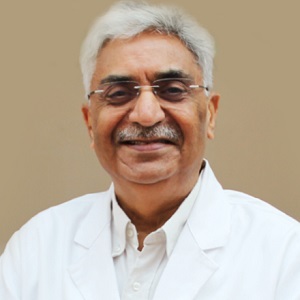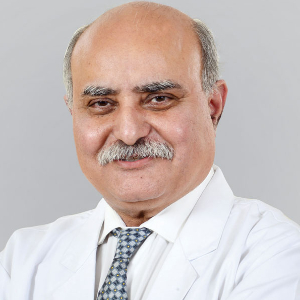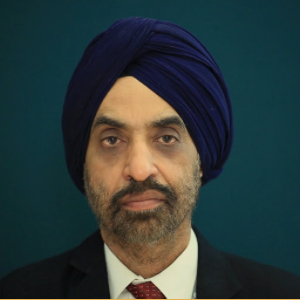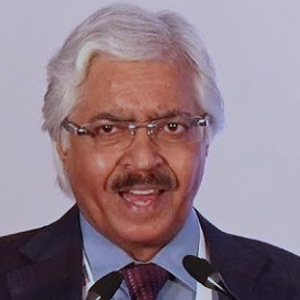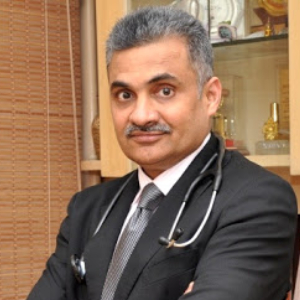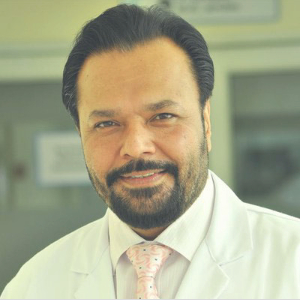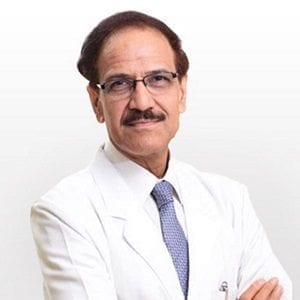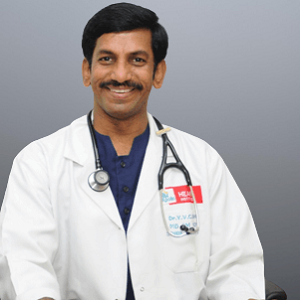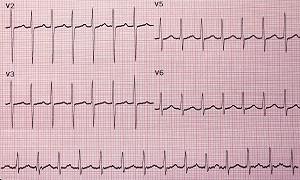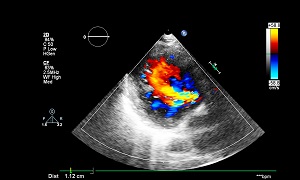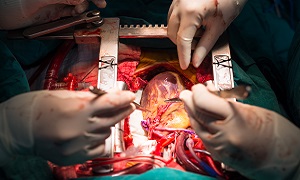Best Doctors in India for Pericardial Effusion Treatment
- Interventional Cardiologist, New Delhi, India
- Over 23 years experience
Profile Highlights:
- Dr. Amit Mittal is a cardiologist working at Indraprastha Apollo Hospital in New Delhi with experience of over 23 years in Interventional Cardiology.
- He is good to consult for Angiogram, Angioplasty, and Bypass Surgery. Dr. Mittal has performed over 15,000 cardiac procedures till now. He offers services like EPS and RFA procedures, pacemaker implantation, ECG, complex surgery of heart valve replacement, and angina treatment, to name a few.
- Apart from that, Dr. Mittal won a Gold medal in MBBS 1st y and for the highest marks in obstetrics and gynecology. He published many papers in national and international medical journals and chapters in textbooks.
- Cardio Thoracic & Vascular Surgeon, New Delhi, India
- Over 30 years’ experience
Profile Highlights:
- Dr. Bhaba Nanda Das is a well-known cardiovascular and cardiothoracic surgeon and has performed the first Coronary Artery Bypass Grafting (CABG) on a beating heart in India.
- He has performed over 20,000 cardiac surgeries and does more than 800 cardiac surgeries annually.
- With a keen interest in cardiovascular and thoracic procedures, Dr. Das is the first cardiac surgeon to use all arterial grafts for multiple coronary revascularizations. He was also the first to use coronary sinus in Fontan’s circulation.
- Vascular Surgeon and Interventional Cardiologist, Gurugram, India
- Over 30 years’ experience
Profile Highlights:
- Dr. T S Kler is undoubtedly one of the best vascular surgeons not only in India but also abroad. He has performed more than 25,000 Surgeries in his life which makes him stand where he is.
- He is a pioneer in electrophysiology & he established the first dedicated Electrophysiology department in India at Fortis Escorts Heart Institute.
- Dr. T S Kler initiated a radio Frequency Ablations programme at Escorts in 1993, one of the first of its kind in India. He was the first doctor in India to implant an ICD, CRT-P & CRT-D.
- Cardio Thoracic & Vascular Surgeon, New Delhi, India
- Over 30 years’ experience
Profile Highlights:
- Dr. Ajay Kaul is a leading name in the field of Cardiothoracic and Vascular Surgery in India with over 3 decades of experience.
- He specializes in Coronary Bypass surgery and is one of the best with the highest number of total arterial coronary bypass surgery (4000+) by using two internal mammary arteries from the chest and without any cuts on arms and legs.
- He is also an expert in minimally invasive cardiac surgeries (MICS) and has performed more than 4000 MICS which is the highest by any cardiac surgeon in India.
- Cardiologist, New Delhi, India
- Over 32 years’ experience
Profile Highlights:
- Dr. Balbir Singh is a reputed cardiologist with over 32 years of experience, considered a veteran in his field, both nationally and internationally.
- He has also pioneered several minimally invasive cardiology surgical techniques in India and has been honored with the prestigious Padma Shree Award for his exceptional performance.
- “LIMCA” Book of Records also highlighted Dr. Balbir Singh’s contribution to the medical field in the Indian Electrophysiology Journal.
- Interventional Cardiologist, New Delhi, India
- Over 30 years’ experience
Profile Highlights:
- Dr. Ashok Seth is one of the most well-known Interventional Cardiologists in India honored with both the Padma Shri and Padma Bhushan by the Government of India.
- He has more than 3 decades of experience in interventional cardiology and has performed over 20, 000 angioplasties and 50,000 angiograms till date.
- Dr. Seth holds a Fellowship of the Royal College of Physicians of Ireland, London, and Edinburgh along with several other degrees to his name.
- Interventional Cardiologist, New Delhi, India
- Over 20 years’ experience
Profile Highlights:
- Dr. Praveer Aggarwal is a nationally acclaimed and highly professional Interventional Cardiologist.
- His specialization lies in the treatment of blockages of the coronary and peripheral arteries and is an expert in Rotational and Directional atherectomy, intravascular ultrasound, pressure wire, and the use of Drug Eluting Stents.
- Along with his team at Fortis Escorts Heart Institute, Dr. Aggarwal performs close to 2000 angiographies and over 2000 coronary interventions including coronary angioplasties every year.
- Interventional Cardiologist, Gurugram, India
- Over 27 years’ experience
Profile Highlights:
- Dr. Manjinder Sandhu is a leading interventional cardiologist based in Gurugram who holds an extensive experience of over 27 years in the field.
- His primary interest lies in Complex Coronary Interventions, Trans-radial Interventions, and Balloon Valvuloplasty, and has performed a large number of such procedures in his career mainly while serving in the Army Medical Corps.
- Dr. Sandhu has been teaching and training postgraduate students in Cardiology and Medicine and has been a guide to several successful cardiologists in India.
- Interventional Cardiologist, New Delhi, India
- Over 20 years’ experience
Profile Highlights:
- Dr. Subhas Chandra is a leading Interventional Cardiologist who holds close to 20 years of experience and specializes in coronary interventions, endovascular interventions, device implantation, and structural heart diseases.
- He has performed more than 25,000 coronary interventions (complex angioplasty and rotablation), 4000+ for structural heart diseases, and has done more than 3000 permanent pacemaker implants.
- Interventional Cardiologist, Chennai, India
- Over 25 years’ experience
Profile Highlights:
- Dr. Y Vijayachandra Reddy is an interventional cardiologist with 25+ years of experience.
- Dr. Reddy’s work experience includes more than 7000 PCIs, 30000 invasive procedures, 550 PCIs in cardiogenic shock, 700 Cardiac devices, 400 PTMCs, and several EVAR and TEVAR procedures.
- His expertise lies in pacemaker implantations, pediatric interventions, ICDs, CRTs, endovascular repairs, and more.
Best Hospitals in India for Pericardial Effusion Treatment
Fortis Escorts Hospital, New Delhi
- City: New Delhi, India
Hospital Highlights:
- Over the last 33 years, the Fortis Escorts Heart Institute has set new standards in cardiac treatment with groundbreaking research. It is now known around the world as a centre of expertise for Cardiac Bypass Surgery, Interventional Cardiology, Non-invasive Cardiology, Paediatric Cardiology, and Paediatric Cardiac Surgery.
- The hospital has cutting-edge laboratories that perform a wide range of diagnostic tests in Nuclear Medicine, Radiology, Biochemistry, Haematology, Transfusion Medicine, and Microbiology.
- Fortis Escorts Heart Institute boasts a diverse group of bright and experienced doctors who are backed up by a team of highly qualified, experienced, and devoted support professionals as well as cutting-edge equipment such as the recently installed Dual CT Scan.
- Approximately 200 cardiac doctors and 1600 personnel currently collaborate to manage over 14,500 admissions and 7,200 emergency situations each year. The hospital now has a 310-bed infrastructure, as well as five cath labs and a slew of other world-class amenities.
Rela Hospital, Chennai
- City: Chennai, India
Hospital Highlights:
- RIMC is a multi-specialty hospital in a sprawling area of 36 acres located in Chromepet, Chennai, Tamil Nadu, India.
- The facility has 450 beds including 130 critical care beds, 9 operating rooms, modern reference laboratories and radiology services, and is conveniently located near road, rail and air transportation.
- RIMC is led and managed by world-renowned physicians committed to healthcare.
- RIMC offers the broadest range of clinical care, education, and research. The hospital offers state-of-the-art technology and modern treatment facilities designed to provide health care at an affordable cost.
- Rela Institute is driven by patient needs, comfort and confidence.
CARE Hospitals, Hyderabad
- City: Hyderabad, India
Hospital Highlights:
- CARE Hospitals were established in the year 2000, by CARE Group.
- The multispecialty hospital has 435 beds, including 120 critical care beds, with an annual inflow of 180000 outpatients and 16,000 in-patients.
- The hospital provides specialty medical services in Cardiology, Cardiothoracic Surgery, Pediatric Cardiology, Pediatric Cardiothoracic Surgery, Neurology, Neurosurgery, Nephrology, and Urology.
- The hospital has the first dual source, 128 slice CT scanner (for high precision cardiac imaging) – the first of its kind in south India.
- The hospital offers a wide range of accommodation facilities for the convenience of its varied patient base, ranging from general wards to super deluxe rooms.
Fortis Hiranandani Hospital, Mumbai
- City: Mumbai, India
Hospital Highlights:
- Fortis Hiranandani hospital was established in 2007.
- The hospital is an advanced tertiary care, multi-specialty hospital equipped with 149 beds.
- The hospital is equipped with a super ICU to provide emergency medical care to critically ill patients.
- The hospital is NABH accredited.
- The critical care facility in the hospital is augmented with the state-of-the-art facilities that facilitate speedier diagnosis and efficient monitoring.
- The hospital provides specialty medical services in cardiology, orthopedic science, pediatric science, neurology, diabetic care, urology, nephrology, ENT, obstetrics, gynecology, cosmetic surgery, bariatric surgery, neuro and spine care.
Fortis Hospital, Anandpur, Kolkata
- City: Kolkata, India
Hospital Highlights:
- Fortis Hospital, Anandapur, Kolkata is a world-class super-speciality equipped with the latest technologies in the medical world.
- The hospital is NABH accredited.
- This state-of-the-art facility specializes in cardiology and cardiac surgery, urology, nephrology, neurosciences, orthopaedics, digestive care, emergency care and critical care.
- The hospital, governed by integrated Building Management System (IBMS), has a pneumatic chute system, for quick vertical and horizontal transportation between floors, facilitating speedy transfer of patient specimens, documents, reports, and medicines to the concerned departments.
- The hospital also has a nephrology department with over 28 advanced dialysis units.
Fortis Hospital Banerghatta, Bengaluru
- City: Bengaluru, India
Hospital Highlights:
- Fortis Hospital Bannerghatta, Bengaluru was established in 2006.
- The hospital is a 276 bedded multi-specialty tertiary care facility.
- The hospital specializes in cutting-edge medical technology and dedicated patient care services.
- The hospital is equipped with state-of-the-art technologies like trans-radial angioplasty, trans-abdominal cardiac surgery, and computerized TKR navigation surgery.
- The hospital provides specialty medical services in cardiology, cardiac surgery, orthopedics, neurology, neuro-surgery, GI, and Minimal Access Surgery (MAS).
Fortis Hospital, Malar, Chennai
- City: Chennai, India
Hospital Highlights:
- Fortis Malar was established in 1992 and was formerly known as Malar Hospital.
- The hospital specializes in cutting-edge medical technology and dedicated patient care services.
- The hospital is multi-specialty, tertiary care facility with 180 beds.
- The hospital offers comprehensive medical care in specialties such as cardiology, cardio-thoracic surgery, neurology, neurosurgery, orthopedics, nephrology, gynecology, gastroenterology, urology, pediatrics, and diabetes.
Gleneagles Global Hospital, Parel, Mumbai
- City: Mumbai, India
Hospital Highlights:
- Gleneagles Global Hospital The 450-bed facility comprises of 17-stories, housing state-of-the-art infrastructure, and advanced medical care facilities.
- The hospital offers end-to-end clinical, surgical, and diagnostic services. It is equipped with a team of eminent medical professionals aided by qualified nurses and medical staff
- The Hospital offers advanced Endoscopic procedures, Hepatobiliary and Liver Surgeries, Surgical and Medical Gastroenterology, Bariatric Surgery, and Robotic surgery.
- The hospital is a center of excellence for Orthopedics, Joint Replacement, Knee Replacement, and Hip Replacement surgery.
Jaypee Hospital, Noida
- City: Noida, India
Hospital Highlights:
- Jaypee Hospital is the flagship hospital of the Jaypee Group.
- This hospital has commissioned 525 beds in the first phase and has been planned and designed as a 1200 bedded multi-specialty facility.
- It holds the accreditation of the NABH and NABL.
- The hospital has state-of-the-art infrastructure equipped with the latest technologies and modern equipment like 64 Slice PET CT, Dual Head 6 Slice SPECT CT, Gamma Camera, and Da Vinci Robotic Surgery for comprehensive robotic surgical solutions.
- It has special Centers dedicated to the major specialties to provide hassle-free and high-quality clinical care.
Manipal Hospital, Dwarka, Delhi
- City: New Delhi, India
Hospital Highlights:
- Manipal Hospitals, Dwarka, is a super-specialty hospital in Dwarka, New Delhi, which is a part of Manipal Hospitals Group.
- The hospital aims to provide the best treatment on par with international standards at a fraction of the cost.
- Equipped with 380 beds, the hospital is also one of the new age hospitals which are equipped fully with state-of-the-art infrastructure, cutting-edge technology as well as the latest and advanced clinical practices. The hospital also has 13 modular Operation theatres with 118 beds which are solely meant for critical care.
- The hospital comprises internationally acclaimed doctors and highly professional and experienced hospital and medical staff who are able to provide preventive, therapeutic, and diagnostic services all under one roof.
Pericardial Effusion
A pericardial effusion is a condition in which there is an excess of fluid between your heart and the sac surrounding the heart, which is termed the pericardium. Although most of them are not harmful, they can sometimes make the heart work poorly.
The pericardium is a tough and layered sac. When the heart beats, it slides easily within it. The sac’s two layers have around 2-3 tablespoons of clear and yellow pericardial fluid. When you suffer from pericardial effusion, an excess of fluid sits in the sac. Small ones may contain 100 milliliters of fluid, while large ones may have more than 2 liters.
Symptoms
In some cases, you might have significant pericardial effusion without having any signs or symptoms. This may be the case if the fluid has increased slowly.
When symptoms of pericardial effusion occur, they might include one or more of the following:
- Shortness of breath or difficulty while breathing
- Chest pain, which occurs usually behind the breastbone or on the left side of the chest
- Discomfort in breathing while lying down
- Swelling in the abdomen or the legs
- Chest fullness
If you feel chest pain that lasts over a few minutes, then it might be best to call a doctor or emergency services.
Causes
Pericardial effusion may be caused due to inflammation of the pericardium in response to an ailment or injury. It might also occur when the flow of pericardial fluid is blocked or when blood collects within the pericardium, such as from chest trauma. Some other causes of this condition can include the following:
- Autoimmune disorders like lupus or rheumatoid arthritis
- Inflammation of the pericardium after a heart attack or a heart surgery
- Spread of cancer particularly lung cancer, breast cancer, leukemia, melanoma, non-Hodgkin’s lymphoma, or Hodgkin’s disease
- Cancer of the pericardium or heart
- Chemotherapy treatments for cancer
- Radiation therapy treatment for cancer if the heart was within the radiation field
- Waste products in the blood caused by kidney failure
- Underactive thyroid
- Trauma or puncture wound near the heart after an open-heart surgery
- Viral, bacterial, parasitic, or fungal infections
- Certain prescription drugs
Diagnosis
Physical Examination
Echocardiogram
Electrocardiogram
In this method, electrodes placed on your chest help to trace the heart’s electrical activity. Certain patterns on the electrocardiogram can signal a pericardial effusion or the inflammation that causes it. If it is suspected, an echocardiogram may be used to confirm it.
Once the effusion has been identified, your doctor will need to figure out its size and severity. Usually, it’s small and doesn’t cause any serious problems. However, if it is large, it may even compress your heart and hamper its blood-pumping ability. Known as cardiac tamponade, this condition can be life-threatening.



